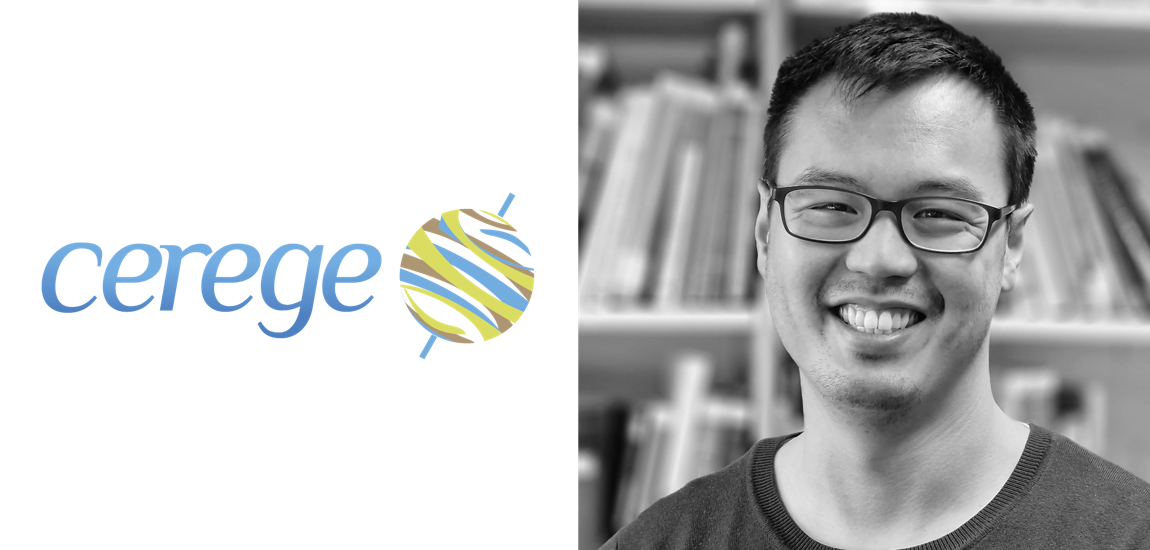
David Au Yang, Analytical research engineer
What is your job?
I am a research engineer at the Center for Research and Education of Environmental Geosciences (CEntre de Recherche et d’Enseignement des Géosciences de l’Environnement, CEREGE) based in Aix-en-Provence, France. My position is currently a 2-year contract with the possibility to extend it to a permanent position. I work on a technical center for stable isotopes (PANISS) where I am in charge of the isotopic measurements for mainly academic collaborators, the maintenance and management of PANISS, formation of user and analytical development on an isotope-ratio mass spectrometer.
How did you get your job?
After two years of post-doctoral fellowship and a year of teaching in high school, my PhD supervisor sent me the job offer at CEREGE, which I also found on the Isogeochem email list.
Did you initially plan on this career at the onset of your PhD?
Before my PhD I wanted to be a high school teacher. However, when I was involved in my PhD, I was focused only on my academic career, hoping that I would not have had any other exam to take. I wanted to be the equivalent of lecturer in France. At the end of my first post-doctoral contract, 2 years after my PhD, I applied to post-doctoral job offers, I wrote proposals and funding grants such as Marie Curie. As I didn’t get the funding, I finally decided to work for a year as a contract teacher, to see if the teaching experience in high school would fit me. After a very pleasant experience, I applied to the research engineer offer because I was missing performing experiences in the laboratory and missing to be able to work on innovative subjects in geosciences. Moreover, I could still have the opportunity to teach in this position.
What helped you to be aware of the alternative career paths to academia.
After my post doc, I looked for job offers such as mission manager or engineer in environmental and atmospheric domains. I searched these positions on internet and well-known research center websites. In the meantime, I discussed a lot with my relatives which helped me to get back to the old plan A, the teaching experience.
What are the skills acquired during your academic experience are the most valuable for you today? What are the new skills you learnt in your current job?
Something that really helped me to teach my classes during the year when I was teaching is the training in making slide presentations during my academic career. I was a student myself at university and learned a lot on how to structure a class or present a new topic. Of course, I had to adapt to high school level, in terms of content and pedagogy and it came with practice. I had to plan surprise tests to catch their attention for example. In my present job, I use all the scientific knowledge I gained during my academic career as well as the autonomy to suggest solution to my collaborator’s requests. I also benefit from my previous teaching experience for student training on the instrument and occasionally to vulgarize geoscience for the youngest during events like Fête de la Science.
Would you have wished to have a special training during your time in academia to be more ready for your career today?
Not really, I don’t for my present job.
What aspect of your work are you most excited about at the moment?
At the moment I really like the analytical development part. I like to fix a problem within a context for collaborators working on very distinct topics such as phytoliths or meteorites. Besides, there is eventually a possibility to teach at the university within my current job but I like to take part to vulgarization event.
What advice do you have for PhD student/academic staff who is thinking of leaving academia?
Take everything you can get during your PhD. For those who are victims of imposter syndrome, you are better than you think. You may not be the best, but you should not give up. For those who stop, be aware that it is a strength to dare it.
Interview conducted by Thaïs Couasnon (EAG Communications Committee)
